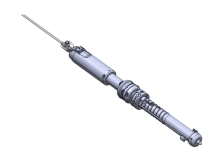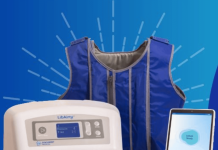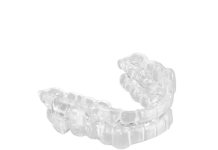Corin received FDA 510(k) clearance for its Unity Knee medial constrained (MC) tibial insert. Cirencester, UK-based Corin designed the Unity Knee MC tibial insert to enhance its overall Unity Knee portfolio. It hopes to give surgeons the option to independently stabilize the medial compartment during a standard or robotic-assisted total knee arthroplasty (TKA).
The Unity Knee MC tibial insert helps restore native knee kinematics. It achieves this by stabilizing the medial condyle while allowing lateral translation. The system is suitable for use with or without the posterior cruciate ligament (PCL).
Related: FDA greenlights OrthAlign’s handheld Lantern Hip navigation system
Corin manufactures the insert with ECiMA bearing technology. This vitamin-E enriched, highly cross-linked polyethylene technology provides low wear characteristics. It also features oxidative stability and enhanced mechanical performance. As part of the Unity Knee system, it has compatibility with ApolloKnee, Corin’s next-generation surgical robot.
ApolloKnee delivers an objective, dual-compartment, sensing and tensing balance assessment prior to bone resections. It allows surgeons to optimize knee function in real-time. Corin says it combines advanced implant design and unique robotic-assisted balancing to improve patient outcomes and satisfaction.
The company plans to offer the Unity Knee MC tibial insert exclusively through a limited market release in the U.S.
“With the recent 510(k) clearances of the Unity Knee MC and PS-C tibial inserts, we’re expanding the range of solutions for surgeons to achieve personalized dynamic knee balance,” said Jim Pierrepont, global franchise lead at Corin. “These advancements reflect our ability to respond quickly to market needs while delivering high-quality innovations. We’re also anticipating further clearances in the coming months, which will strengthen our implant, Apollo, and CorinConnect digital portfolios.
“With our agile R&D pipeline, we remain committed to providing differentiated solutions that enhance patient outcomes.”




